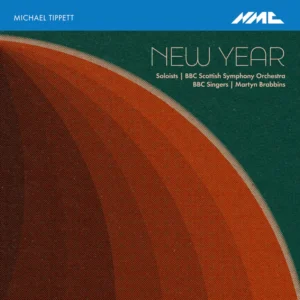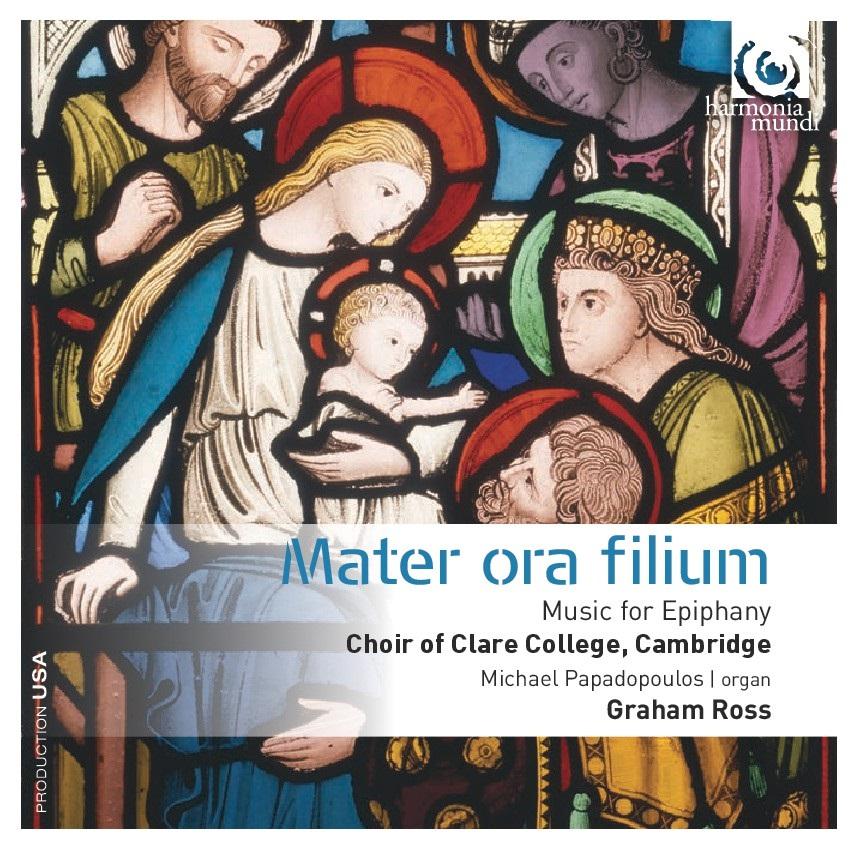Michael Tippett
New Year
Rhian Lois soprano
Ross Ramgobin baritone
Susan Bickley mezzo-soprano
Roland Wood baritone
Robert Murray tenor
Rachel Nicholls soprano
Alan Oke tenor
BBC Singers
BBC Scottish Symphony Orchestra, Martyn Brabbins, conductor
NMC Recordings
Michael Tippett’s final opera, New Year (1988) has finally been recorded. The work was produced in Houston in 1989 and Glyndebourne in 1990 and then fell out of the repertoire. The Birmingham Opera performed it last year, and the NMC double-CD recording is of a 2024 live semi-staged production by the BBC Scottish Symphony, conducted by Martyn Brabbins.
New Year’s reemergence is propitious in timing. Combining elements of sci-fi, time travel, and fairy tales, it seems readily approachable for the streaming generation, with shows like Stranger Things, Time Bandits, and Severance providing a suitable backdrop. The opera also takes on social issues that remain important today, such as urban decline, poverty, racism, and Tippett’s ubiquitous concern for pacifism. However, the vernacular elements are the least successful of the piece, and the Jamaican accent adopted by one of the characters, Donny, played by baritone Ross Ramgobin, is cringeworthy today, and perhaps was back in the eighties too.
Even by the composer’s standards, New Year is abundantly eclectic. Electric guitars, a large percussion section, and electronics combine with a traditional orchestra. Pop styles from the late eighties, notably rap and reggae, are enfolded in an otherwise modernist score with complexly chromatic parts for both soloists and chorus. The narrative itself is circuitous, with one part featuring a time traveling spaceship and the other a dystopian urban landscape. Thus, the challenges, never mind the costs, for any production are substantial.
Brabbins and company surmount most of them in a dedicated and well-prepared performance. The soloists are excellent, in particular soprano Rhian Lois, who plays the principal character Jo Ann, and Robert Murray, who plays the time traveller Pelegrin, both vibrant singers with considerable charisma to match their voices. Susan Bickley, the foster-mother to Jo Ann and Donny, is a warm presence, perplexed by their challenging behavior, agoraphobia for the former and misbehavior for the latter, and yet as nurturing as she can manage. The other time travellers, Merlin, played by baritone Roland Wood, and Regan, played by soprano Rachell Nicholls, provide excellent characterizations of their roles. Tenor Alan Oake as the Voice, the presenter of the action, is an authoritative presence.
New Year is a multifarious and, in places, problematic piece. But one can scarcely imagine a better effort to present it to best advantage than this recording.
-Christian Carey

